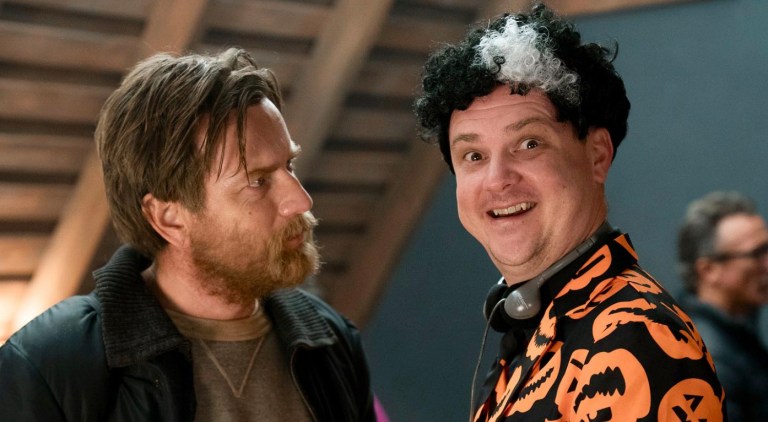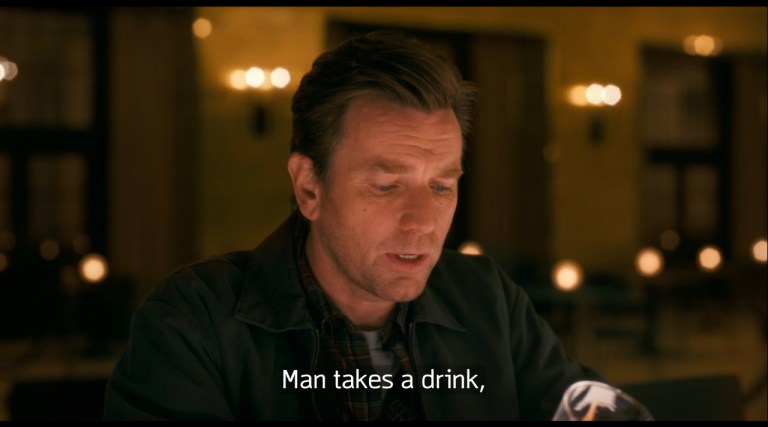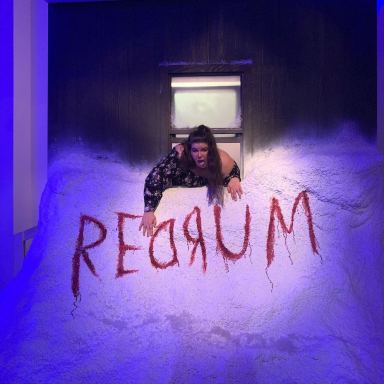Mike Flanagan Says People Who Love Horror Are the ‘Happiest Human Beings’
Flanagan says: “Horror fans are among the most well-rounded and sympathetic and empathetic human beings.”

Mike Flanagan is a horror filmmaker known for his deeply emotional (and deeply scary) films and Netflix series. He is also known to personally be a big fan of the genre, peppering horror references into his work and understanding the decades of lore necessary to create so many skillful adaptations of Stephen King’s stories in addition to his own original horror movies and shows. Flanagan’s standout films include Hush (2016), Gerald’s Game (2017) and The Shining sequel Doctor Sleep (2019). For Netflix, he has created five horror miniseries: The Haunting of Hill House (2018), The Haunting of Bly Manor (2020), Midnight Mass (2021), The Midnight Club (2022) and The Fall of the House of Usher (2023). He is currently adapting Stephen King’s The Life of Chuck for the screen.
In a recent interview on Who’s There? A Podcast About Horror Fans Flanagan discussed why he loves the genre so much and what makes horror fans different from people who love other genres. Podcast host Allison Broder asked him why it’s possible that people who seem “perfectly sane” could love a genre all about violence, terror and death. Flanagan responded “People who love horror have an outlet for a lot of…darkness. And so, by and large, horror fans are among the most well-rounded and sympathetic and empathetic human beings. And [they’re the] kindest human beings and happiest human beings that I meet.”
Flanagan also said “It’s the people who love comedy who seem miserable… who just seem really, really dark.”
Flanagan isn’t alone in saying horror is a healthy outlet for processing emotional stress. Many genre fans are drawn to horror movies because they allow viewers to explore their fears from the safety of their living room. This has also been noted by experts like Dr. Mathias Clasen who has spent decades studying the science of why people watch horror. He says, “The genre allows us to voluntarily—and under controlled circumstances—get experience with negative emotion.”

In feminist filmmaking, horror is seen as an effective way to portray what experiencing trauma feels like, and a way for viewers to process traumatic memories. Artist and cinema PhD student Katia Houde says “One way to avoid retraumatizing is to work through trauma memories under predictable and controlled circumstances… horror tropes can provide such a contained surrogate, as the genre provides the ritualistic rites to work through vestiges of unresolved trauma. By externalizing internal demons through the vehicle of horror, trauma memories are rendered visible and therefore knowable and destructible.”
It seems like many are in agreement that horror fans face up to their fears (including scary/unpleasant emotions) through the films they watch. Creepy Catalog even has lists of horror movies that specifically provide catharsis around issues like grief, trauma and family dysfunction. Instead of escaping into a fantasy world of romance or comedy, horror fans engage in fiction that mirrors the emotions they feel in real life. This is probably why Flanagan notices that they seem happier overall.
You can listen to the full Who’s There? A Podcast About Horror Fans episode with Mike Flanagan here.
Further reading:
- Mike Flanagan Got Sober on the Set of ‘Doctor Sleep’ (2019)
- Mike Flanagan Shows and Movies on Netflix, Ranked
- Why ‘The Fall of the House of Usher’ Will Be Mike Flanagan’s Last Series on Netflix
- 3 Themes That Show up in Every Mike Flanagan Project
- Mike Flanagan Is Adapting Stephen King’s ‘The Life of Chuck’
